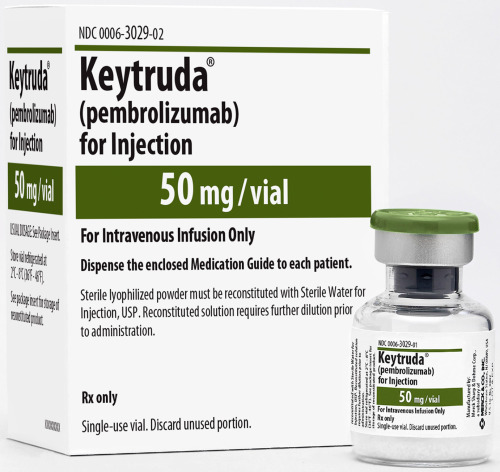Merck's Keytruda gets boost in kidney and head and neck cancer

Merck & Co and its cancer immunotherapy Keytruda has gained a double boost in its tussle with rival Bristol-Myers Squibb, with positive results in kidney cancer, and the promise of an FDA fast review in head and neck cancer.
Keytruda’s sales advantage over rival immunotherapy Opdivo is based around its approval in the lucrative first-line lung cancer indication, where BMS’ drug has failed to produce convincing trial results.
But US-based Merck & Co is trying to press home this advantage by getting Keytruda (pembrolizumab) approved in a range of other cancer indications, including those where Opdivo (nivolumab) already has a foothold.
Opdivo, in combination with BMS’ Yervoy (ipilimumab) is already approved in intermediate or poor-risk patients with untreated advanced renal cell carcinoma.
Merck is looking to compete in this indication by combining Keytruda with Pfizer’s cancer drug Inlyta (axitinib).
Results from the phase 3 KEYNOTE-426 show that the combination of Keytruda and Inlyta reduced risk of death in renal cell carcinoma by around 47%, compared with Pfizer’s established cancer drug Sutent (sunitinib).
The combination significantly increased progression-free survival and overall response rate, and results were consistent across all risk groups, and regardless of expression of the biomarker PD-L1.
Treatment-related adverse events were grade 3-5 in 62.9% of patients in the Keytruda and Inlyta arm vs. 58.1% in the sunitinib arm and led to regimen discontinuation in 6.3% vs. 10.1% of patients in those arms, respectively.
The companies had already indicated that the trial had been a success in October, but this interim analysis suggests that BMS and Opdivo could face tough competition in kidney cancer if Keytruda is approved in this indication.
Full results from KEYNOTE-426 will be presented at a forthcoming medical meeting.
And in a separate development the FDA has also given Keytruda a Priority Review in first-line head and neck cancer, alone or in combination with chemotherapy.
The regulator will grant a faster six-month review, as opposed to the standard ten-month period, based on trial results presented at the European Society for Medical Oncology (ESMO) meeting in October.
Results showed Keytruda could cut risk of death by 22% compared with standard of care in patients testing positive for the PD-L1 biomarker.
In patients with higher levels of PD-L1, the survival figure increased to 39%. In the overall population, risk of death was reduced by 23%.













